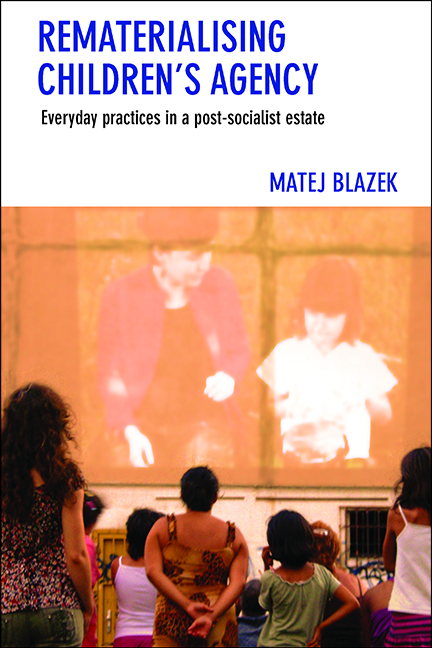six - The body and embodiment
Published online by Cambridge University Press: 01 September 2022
Summary
Physical contacts with children were a routine element of my fieldwork. Hugs, taps, handshakes, strokes, I received even a kiss or two … Also bumps, kicks and spitting once. I was instructed by the Centre staff that there were no strict formal rules about touching children – such as that one could not hold them or hug them. However, there were some principles I was supposed to follow – to be very careful about initiating bodily contact with children and rather let them decide and perform when and if at all they wanted any bodily interaction; to consider what impact this could have on children, especially if performed frequently/regularly – for example whether it could instigate too intensive attachment by the child or s/he would receive too much attention if compared to other children; and, not least, to monitor my own boundaries beyond which I would feel uncomfortable – that is, to do what I feel at ease to do.
I became a highly appreciated member of the staff as I usually did not mind lifting the children or carrying them around the neighbourhood, either on my back, shoulders or in arms. I had to monitor and limit such behaviour as the kids were often overenthusiastic, fought each other for a chance to be carried (so I had to organise a queue) and with some, this became too much the core in our relationship (and yes, my back often ached). After a couple of weeks, however, I began to reflect also broader dimensions of physical interactions with children, those that went beyond the actual interactions between two (sometimes three or more) of us.
I was carrying Rebeka (13) on my back around the lodging house and we chatted about some recent events when suddenly a man roared from above:
‘REBEKA!!! WHO’s THAT PERVERT?’
‘HE’s NOT A PERVERT, HE’s FROM THE CENTRE!!!’ – Rebeka yelled back.
‘You are not a pervert, are you?’ – she asked.
‘No. I’m not.’
‘Great. Let’s go.’
(Extract from field notes, October 2008)
The incident with Rebeka illustrates how bodies take an important role in children’s everyday practices (as well as those of other people). In this short story, our bodies were not just passive matters but also the interfaces of our contact and at the same time the signifiers of our social positions, articulated through the intervention of Rebeka’s father.
- Type
- Chapter
- Information
- Rematerialising Children's AgencyEveryday Practices in a Post-Socialist Estate, pp. 95 - 118Publisher: Bristol University PressPrint publication year: 2015



